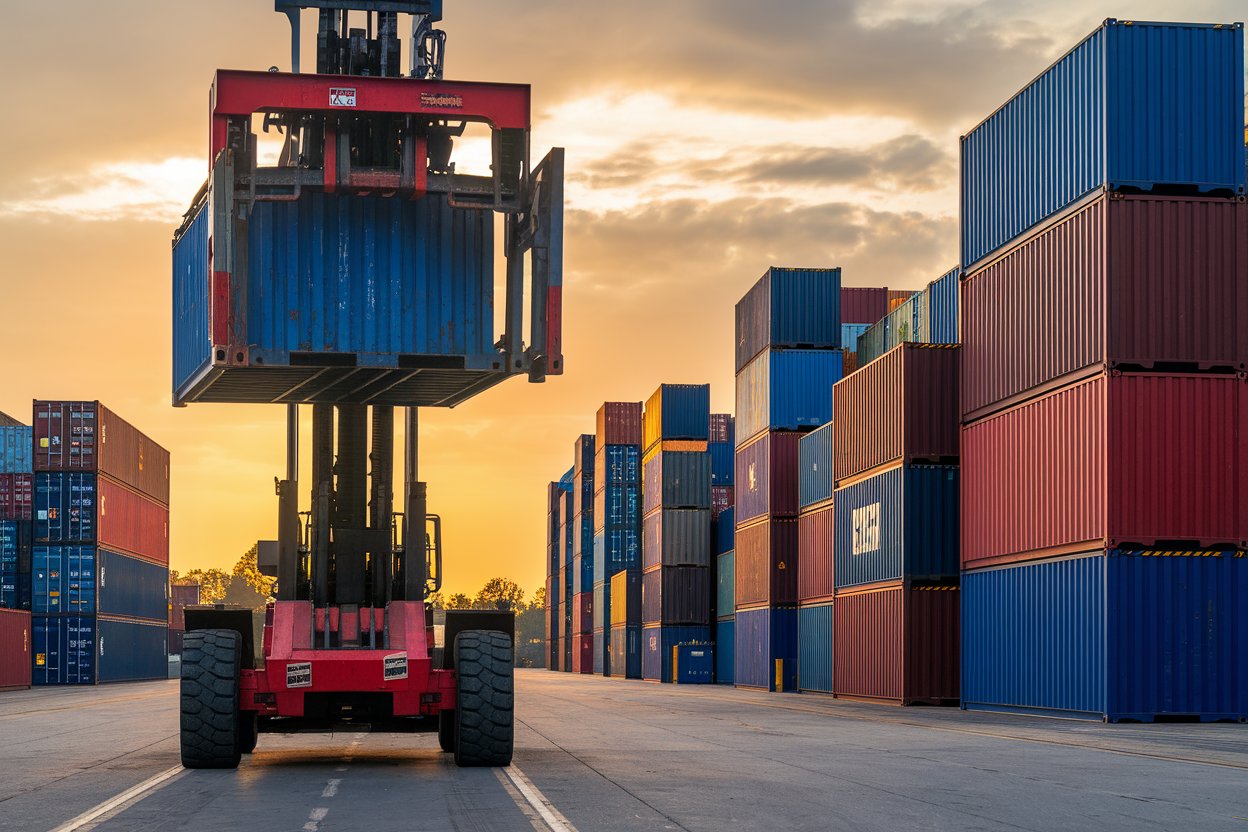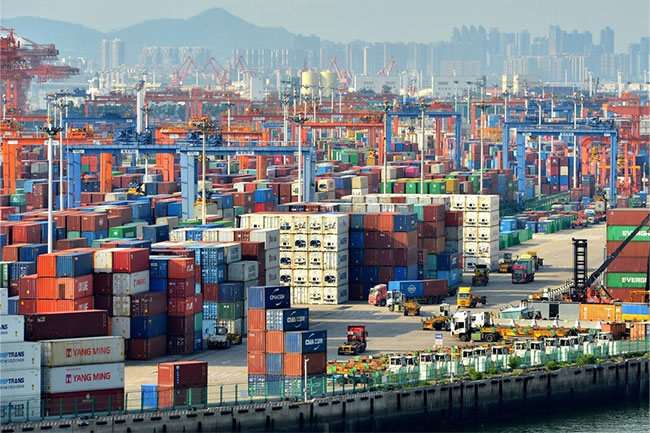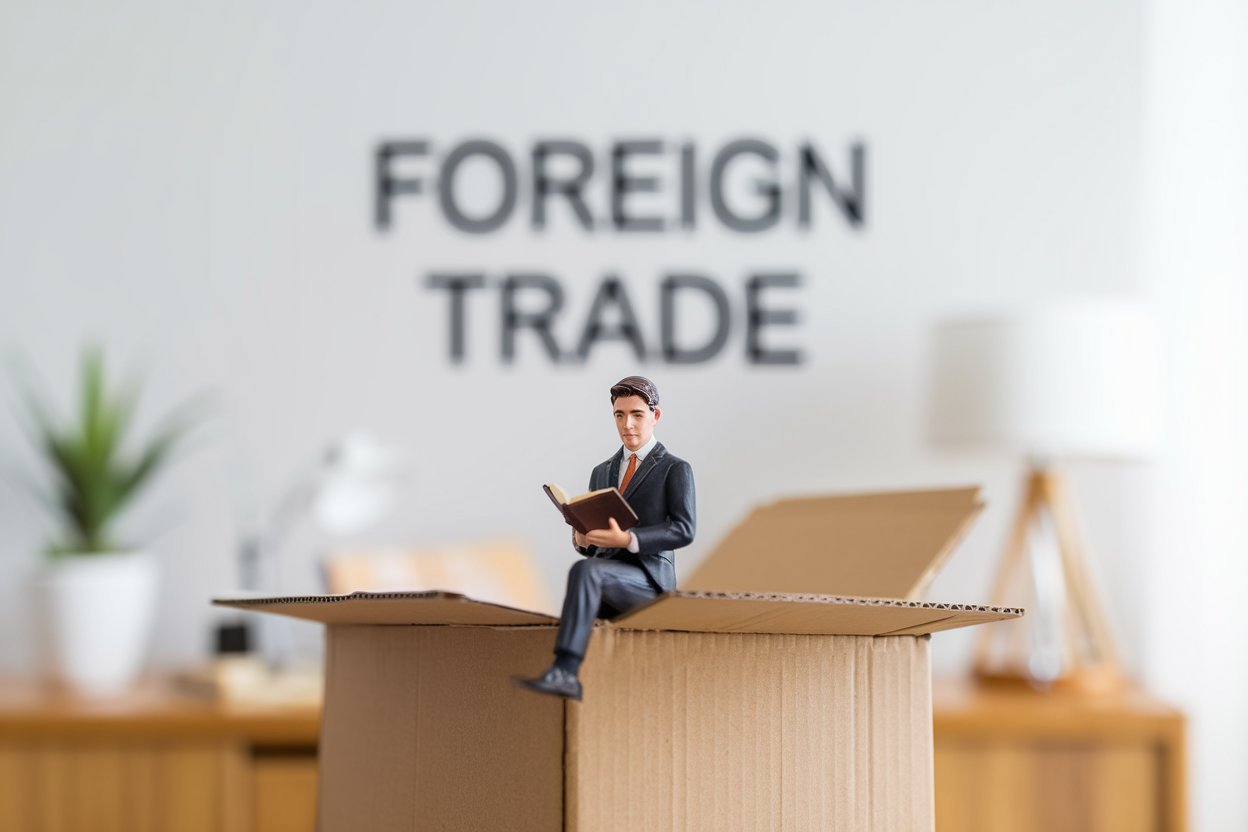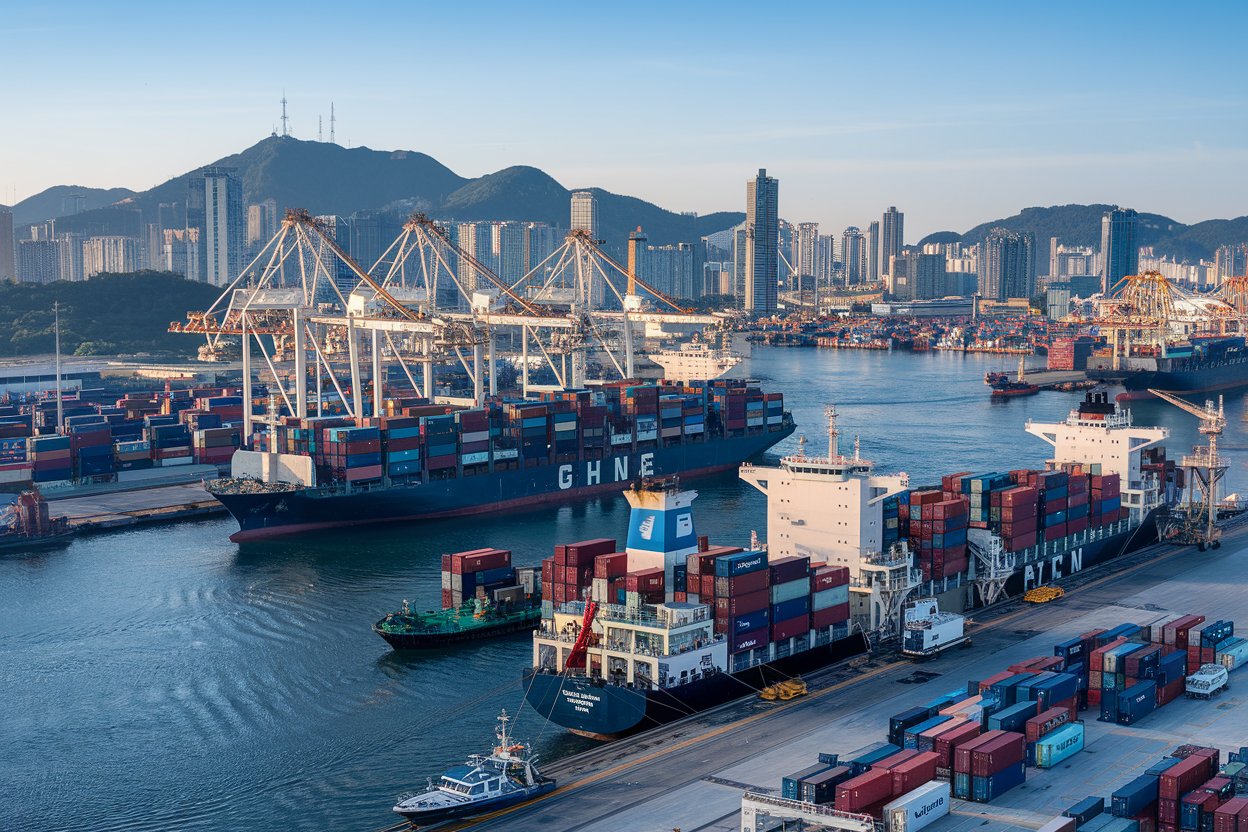- Shanghai Zhongshen International Trade Co., Ltd. - Two decades of trade agency expertise.
- Service Hotline: 139 1787 2118

Introduction
In today's globalized business environment, importing equipment such as scanners from South Korea has become a crucial pathway for many enterprises to expand their operations. However, the import process involves numerous complex steps, including documentation handling, logistics arrangements,FX Settlement Agencyas well as product certifications. This article will provide a detailed explanation regarding the import of scanners from South Korea for you.foreign tradeProcess and Key Points to Help You Successfully Complete Import Business.
Professional document processing and logistics arrangements
During the process of importing scanners, document handling is a crucial step. First is the Commercial Invoice, which provides detailed information such as the scanner's product description, quantity, and value, serving as a key basis for customs valuation and taxation. The Packing List must accurately specify details like the scanner's packaging specifications, quantity, and weight to facilitate inspection during transportation and customs clearance. The Bill of Lading, as proof of ownership of the goods, directly impacts the delivery of the cargo based on the accuracy of its contents.
Our company has extensive experience in document processing, ensuring that all types of documents are accurate and submitted in a timely manner. For logistics arrangements, we select the most suitable transportation method based on the characteristics of the scanners and customer requirements. If the shipment volume is small and time-sensitive,Air Transportation(Air Freight) is a good choice as it can quickly deliver goods to the destination. For large quantities of goods,Maritime Transportation(Ocean Freight) offers greater cost advantages. During the shipping process, we maintain close cooperation with major shipping companies to secure the most favorable freight rates and cabin space. Additionally, we will arrange the cargo loading appropriately to ensure the scanners are well-protected throughout transportation.
For example, a client once imported a batch of high-precision scanners from South Korea. Given the delicate nature of the equipment, which demanded stringent transportation conditions, we employed professional packaging design with customized shock-absorbing materials to ensure the cargo remained undamaged during long-distance transit. Additionally, we meticulously planned the shipping route and schedule, opting for a direct flight to eliminate potential risks associated with transshipment. Ultimately, the goods arrived safely and on time in the client's hands.
Characteristics and Advantages of Different Markets
Russian Market and VTB Settlement Advantages
If your scanner import business involves the Russian market, our company has unique advantages in facilitating foreign exchange settlement through VTB. Foreign exchange settlement refers to the process where the owner of foreign exchange income sells it to a designated foreign exchange bank, which then pays the equivalent amount in local currency at a certain exchange rate. In trade with Russia, VTB Bank is a key financial institution. Leveraging our established cooperative relationship with VTB Bank, we can streamline the foreign exchange settlement process and accelerate fund transfers.
Generally speaking, the traditional foreign exchange settlement process for Russia can be quite cumbersome, involving numerous document reviews and foreign exchange regulatory requirements. However, through our VTB channel, you only need to provide standardized trade documents as required by the bank, such as contracts, invoices, bills of lading, etc., to quickly complete the foreign exchange settlement. This not only reduces the funds' transit time and mitigates exchange rate fluctuation risks but also provides convenience for corporate capital turnover. For example, a company engaged in scanner trade with a Russian client saw the foreign exchange settlement time, which originally took 10 working days, shortened to 5 working days through our VTB settlement service, significantly improving the efficiency of the company's capital utilization.
Southeast Asian Marketimport and exportProcesses and Solutions
When importing scanners from South Korea for sale in the Southeast Asian market, understanding the import and export procedures is crucial. First is the export process: in South Korea, exporters need to prepare basic documents such as commercial invoices, packing lists, and bills of lading. Additionally, depending on South Korea's export regulations, it may be necessary to provideIt is recommended to verify through the following methods:The Certificate of Origin (CO) is used to prove the country of origin of the scanner, which in certain cases helps in enjoying preferential tariff policies.
When importing into Southeast Asian countries, import regulations vary by country. Taking Vietnam as an example, importers are required to submit a pre-declaration to Vietnamese customs before the goods arrive, including documents such as commercial invoices, packing lists, bills of lading, and import licenses (if required). Customs will inspect and assess the goods, levying import duties and value-added tax based on the goods' value and applicable tax rates. In Thailand, the import process is similar, but for certain specific scanner products, compliance with relevant Thai product standards and certification requirements may be necessary.
For the Southeast Asian market, we provide comprehensive solutions. In terms of documentation, we assist clients in accurately preparing all necessary documents to ensure compliance with local regulatory requirements. Regarding logistics, given the numerous ports in the Southeast Asian region, we select the most suitable discharge port based on the final destination of the goods and arrange inland transportation. For example, if the final destination of the goods is Phnom Penh, Cambodia, we would choose Ho Chi Minh Port—which is relatively close to Phnom Penh and has well-developed logistics facilities—as the discharge port, then safely deliver the goods to the client in Phnom Penh via road transport.
Challenges and Opportunities in the Current International Trade Landscape
The current international trade landscape is complex and ever-changing, presenting a series of challenges and opportunities for importing scanners from South Korea. On the challenge front, the rise of trade protectionism means some countries may impose high tariff barriers or introduce stringent import restrictions. For instance, certain nations might significantly raise tariff rates on imported scanners to protect their domestic scanner industries, undoubtedly increasing import costs. Additionally, the ongoing impact of the global pandemic has introduced numerous uncertainties to international trade, such as logistics disruptions and supply chain interruptions.
However, there are also numerous opportunities. With the acceleration of digital transformation, the demand for office equipment such as scanners continues to grow. Especially during the pandemic, the rise of remote work and online education has further expanded the market demand for scanners. Additionally, countries are actively promoting the signing of free trade agreements, providing more tariff benefits and facilitation measures for import businesses. For example, South Korea has signed free trade agreements with multiple countries and regions. By leveraging these agreements effectively, importers can enjoy lower tariff rates and reduce import costs.
Facing these challenges and opportunities, importers need to closely monitor changes in international trade policies and promptly adjust their import strategies. Strengthening communication and collaboration with suppliers and logistics partners is essential to ensure supply chain stability. At the same time, they should fully leverage the advantages of policies such as free trade agreements to reduce import costs and enhance product competitiveness.
Product certification services
When importing scanners, product certification is an indispensable step. Different countries and regions may have varying certification requirements for scanners. For instance, in the European Union market, scanners must comply with the CE certification standards to demonstrate that the product meets the relevant EU directives and harmonized standards. In the United States, FCC certification may be required to ensure the product's electromagnetic compatibility and other aspects comply with U.S. regulations.
Although our company does not directly provide certification handling services, we offer comprehensive certification information consulting services to our clients. We assist clients in understanding the certification requirements of target markets and guide them in preparing the necessary documentation for certification. Throughout the certification process, we maintain communication with certification bodies and promptly provide clients with updates on the progress. For example, we once had a client who planned to sell scanners imported from South Korea in Australia. We helped the client understand Australia's RCM certification requirements and guided them in preparing the relevant technical documents. Ultimately, the client successfully completed the certification, and the products entered the Australian market smoothly.
Conclusion
Importing scanners from South Korea involves multiple complex processes, including document handling, logistics arrangements, foreign exchange settlement, and product certification. Leveraging our company's professional expertise in document processing and logistics services, unique advantages in different markets, and in-depth understanding of international trade dynamics, we are able to provide you with comprehensive, one-stopImport RepresentationServices. During the import process, we will work closely with you to address various challenges, seize opportunities, and ensure the smooth operation of your import business.
Related Recommendations
Learn
Get in Touch
Email: service@sh-zhongshen.com
Related Recommendations
Contact via WeChat

? 2025. All Rights Reserved. Shanghai ICP No. 2023007705-2  PSB Record: Shanghai No.31011502009912
PSB Record: Shanghai No.31011502009912









